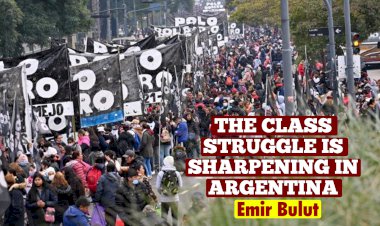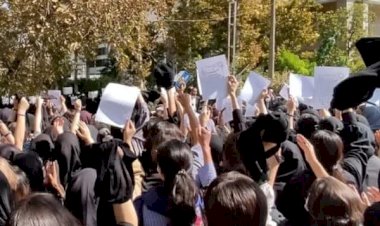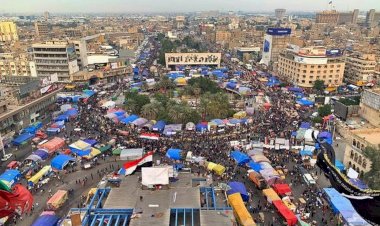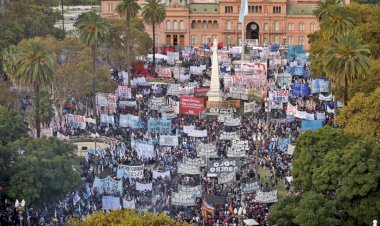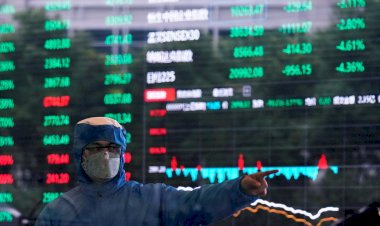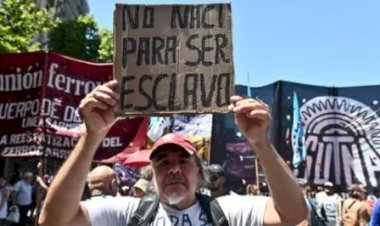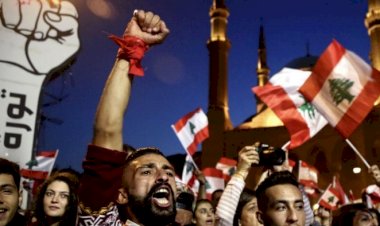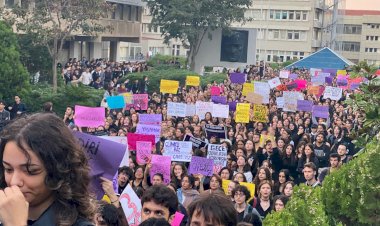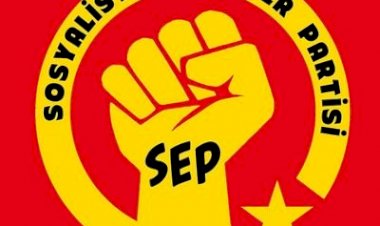Fate of Countries, Elections and Progressive Dynamics
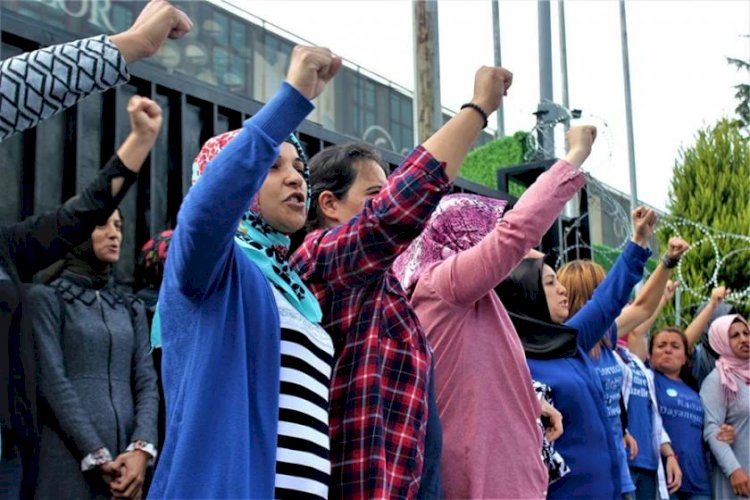
How and by whom are the fates of countries determined? Liberal propaganda tells that the fate of countries is determined by elections and the choice of the people. In ordinary times, elections determine, in Marx's words, “which member of the ruling class is to represent and repress the people in parliament for three or six years”. In such periods, the ruling classes have prominent self-confidence. In times of emergency, things are not left to chance on the part of the ruling class and little value is given to electoral conventions. Everything is on the table —manipulation, electoral fraud, provocations, coups, fascist alternatives, etc. In this case, it would be a big mistake for the working classes to rely on elections. Those who are organized and firm will determine the results.
Therefore, it is necessary to understand the relationship between elections and social struggles correctly. A society progresses as much as its vanguard. It is this leading force that is decisive in extraordinary times. Likely, a society without a vanguard will stagnate. Elections show the conservative overall average. The dynamics of change are revealed in big cities. The organized working class and in some cases (temporarily) youth movements (intellectuals) become the engine of change. This locomotive, which pulls society forward and plays historical roles at decisive moments, is actually a small minority compared to the general population. It is this organized vanguard that collides with reactionary forces, engages in actual struggle, breaks ground, and influences the rest of society by creating social excitement and movement.
Apart from the pessimistic results, the 2023 elections revealed that the dynamic segments of the society in Turkey are detached from the AKP and all kinds of disgrace it represents. However, a locomotive has not yet been formed among these dynamic segments. But extraordinary conditions will force the possibility of the development of this formation. Extraordinary conditions are ready to produce extraordinary results and alternatives. As a matter of fact, the progressive dynamics that will create such a locomotive will not evaporate with the re-election of RTE. As the contradictions become sharper, the number of those who take a sharp and clear stand among the masses will increase. It is not our intention to vainly pump optimism. Therefore, we need to reveal these progressive dynamics.
When the election results are examined, it can be seen that metropolises have turned into opposition centers. It is seen that a dynamic of change has emerged in these centers beyond the educated middle class opposition and that the workers are more and more clearly breaking away from the AKP. It is possible to see this trend in almost every district in Istanbul, especially Beyoğlu, Eyüp, Sancaktepe, Tuzla, Üsküdar, and in Ankara, such as Mamak and Etimesgut. In the upcoming period, with the aggravation of the economic crisis, it should be expected that the shift of the workers will continue and its effect will spread to the rural cities this time. There is also the possibility that this process will trigger workers' actions and shape a real dynamic of workers. It is impossible for Kurdish workers and youth, who lead the most vibrant dynamics in this country, to reconcile with the system. To the extent that the revolutionaries maintain their internationalist stance, they will meet with the Kurdish dynamic and an enormous potential will emerge from this. Women's rights will be the target of Islamist attacks in the coming period. We cannot understand the potential for change without considering the dynamic of women. The Alevis who feel in danger and the lower and middle classes who want a secular and democratic order should also be taken into account. In addition, it should not be forgotten that the youth are more averse to the AKP order than the rest of society and they are more prone to react to futurelessness. As long as the revolutionaries can demonstrate a political alternative, moral superiority, and organizational success that will spring from these dynamics, the construction of the revolutionary locomotive among the progressive social forces will continue successfully.
On the other hand, major social and political changes have rarely taken place with the ballot box. Elections produce conservative results. First of all, sovereigns and reactionary groups have great opportunities to influence the election process. The dominant ideology penetrates the large unorganized sectors of the people. Conservative petty bourgeoisie, traditionalist elements who are afraid of change, those who are attracted to minor interests, those who make hatred for minorities a rule, and those who surrender to ignorance... This whole tendency pulls the poll results towards a conservative average. After all, "common sense" is dominant in the ballot boxes. Dynamic progressive sections of society are included in this average, but the leading locomotive power is invisible at the ballot boxes.
So, cannot any "good" results come from the ballot boxes? Of course, the revolutionary and reformist criteria of the “good” can be discussed here, but even if we take "a shift to the left" as a reference, a social movement is required for this to happen. This means that the grand average of society shifts to the left by the actual struggles with excitement. If and only if these conditions are met, it is possible to shift to the left in the ballot boxes.
As revolutionary Marxists, we have been putting forward the emphasis of “don't rely on elections to get rid of the AKP” for years. It was not possible to reverse the authoritarian tendencies imposed by internal and external processes without street, strikes, protests, organizations, and the society's average shift to the left. The expectation that "the time will come; we will vote and democracy will win" remained rather naive and conformist. The AKP government, which has been in power for 21 years, can use the state apparatus as it wishes. In this process, AKP organized a semi-authoritarian regime together with its fascist partner MHP. This means unlimited state capability, huge propaganda apparatus, and a big stick. The domestic big capital was digested and recruited within its own ignorance. Imperialist powers either directly (Russia and various dictatorships) or indirectly (EU) supported Erdoğan. On the other hand, we are passing through a historical phase where global capitalism cannot overcome its crises, imperialist wars and interventions have become widespread, and parliamentary democracies around the world have lost ground. It was not possible to reverse the authoritarian tendency nurtured by these internal and external dynamics through the ballot boxes. Even in the bourgeois sense of the word, achieving freedom requires labor, struggle, and organization —no pain no gain. This society has to bring out the tradition of struggle from its heart. Those who ask why it didn't happen, and those who look for mistakes should look at the issue from this perspective.
CONCLUSION
There is no room for despair. As revolutionaries, we trust ourselves. We can create the revolutionary engine of this country. The necessary progressive dynamics are present in this society. So instead of getting pessimistic, let's join the fight.
The upcoming period will be a difficult one in which poverty will increase. We must be ready for significant struggles. We have to scale up the organized struggle. Let's not forget that the laws of class struggle are greater than Erdoğan.
Freedom requires labor. The idea that we can get rid of the AKP by simply voting without making any effort, without taking risks, or without being organized has failed. Grunting won't do anyone any good. It will either be a tooth and claw fight or like lambs to the slaughter. There will be no humane life without being organized, without labor, and without raising the class struggle.
The class struggle is decisive. We have to combine the struggle energy of the oppressed with class revolutionism. That's why labor radicalism is our watchword. Identity politics and cultural leftism came to a deadlock, and they essentially serve the right.



